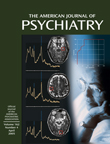Dr. Favazza has taken on the daunting task of reviewing the interface between the Christian religious belief system, especially the Bible, and psychiatry. As a clinical psychiatrist and a seminary graduate, I was eager to read this book. I was engaged by some aspects of the book but disappointed by others.
The Bible has been used, misused, and abused throughout the centuries. It has been the basis for great good, but unfortunately also for evil: to justify slavery, wars, persecutions (the persecuted having become the persecutors), financial exploitation, environmental destruction, subjugation of women, and denial of citizenship rights to homosexuals. These abuses happen because the Bible is a powerful tool that can be wielded by greedy, arrogant, bigoted, and otherwise sinful human beings to support their own agendas. We human beings, present company included, are all sinners (Romans 3:23), a religious principle that is empirically verifiable.
Chapter 4, on homosexuality, is among the better sections of PsychoBible. What one sees in the Bible is often directly related to one’s preexisting opinions, and the issue of homosexuality is perhaps the most telling example. Dr. Favazza identifies the first-century context of pagan temple prostitution in which Paul’s letters were written and demonstrates how those whose political agenda is against homosexual rights lift these passages out of context. People who are negatively predisposed toward homosexual rights tend to see in Paul’s letters a blanket condemnation of all homosexual behavior. Those who are predisposed to support homosexual rights, on the other hand, tend to see a more limited condemnation of the fornication and temple prostitution practices that were widespread at that time.
PsychoBible contains some good discussions of the ideas of Freud, Jung, and others pertaining to religion. There is a great deal of helpful historical background information on the compilation of the Old and New Testaments. There is coverage of healing through prayer and interesting topics in neurotheology, such as out-of-body experiences.
Those who claim that the Bible is entirely without error (“verbal and plenary inspiration”) are themselves demonstrably mistaken, but to call such people “stubborn” and “lazy,” as Dr. Favazza does (p. 324), seems inappropriate for a scholarly work. Bias in the opposite direction (the “minimalist” position) assumes that everything in the Bible is incorrect or is a culturally motivated distortion until proven otherwise. Dr. Favazza cites the Jesus Seminar (a group of minimalist scholars) repeatedly and approvingly but fails to note that its findings are arrived at on the basis of serial speculative assumptions. Between these two extremes can be found more moderate and evidence-based ways to consider the accuracy of the Bible.
PsychoBible is weak on matters of theology, and there seems to be little understanding of the nuances of basic Christian beliefs, such as the Trinity and the Atonement. Martin Luther’s contributions are given a few scant lines, while his negative aspects (he was anti-Semitic, had bowel problems, and used vulgar language) get extended coverage. One does not come away with a balanced understanding of Luther. Several pages are spent recounting the hypothesis, accepted by almost no one, that Jesus faked his own death and resurrection (pp. 69–74).
Dr. Favazza makes several dismissive statements for which he gives no supporting evidence. One example is that it is “doubtful” that Luke was either a physician or a companion of Paul (p. 7). Although it is true that the attribution of authors’ names to the gospels was done decades after their writing, there is a case to be made that Luke, the first-century companion of Paul, did in fact provide the source material on which the present Gospel of Luke is based. Another example is the statement that Isaiah’s Old Testament prophecy of the Suffering Servant “certainly was describing Israel” (p. 26) as opposed to the future Christ.
PsychoBible is written throughout with a tone of flippancy. For example, “Praise the Lord and Pass the Medication” (p. 243) is the title of one chapter. Flippancy might make the book entertaining but also conveys a message about how the author regards this subject matter. There are some notable misspellings (Roman emperors “Trojan,” p. 48, and “Domition,” p. 29) and incorrect uses of theological terms (“divine entities” would not include “angels, saints, and demons” [p. 22]; monotheism and henotheism are confused [p. 20]). Much of the material in the Notes section would have been better incorporated into the main body of the text. There is an extensive bibliography, but citations in the text are sometimes inadequate. I tried to track down the original source page numbers for a quotation from St. Augustine cited on pages 15 and 330 but came to a dead end.
I recommend this book, but not without reservations, to discerning readers who are interested in human behavior and Christianity. There is much here that is useful, but PsychoBible is not without flaws. Informed readers should expect to find some areas in which they will disagree with Dr. Favazza.

